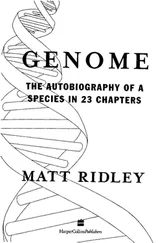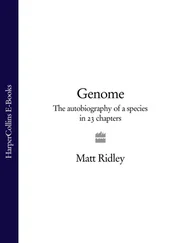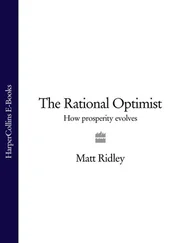The Queen - Matt Ridley
Здесь есть возможность читать онлайн «The Queen - Matt Ridley» весь текст электронной книги совершенно бесплатно (целиком полную версию без сокращений). В некоторых случаях можно слушать аудио, скачать через торрент в формате fb2 и присутствует краткое содержание. Жанр: Старинная литература, на английском языке. Описание произведения, (предисловие) а так же отзывы посетителей доступны на портале библиотеки ЛибКат.
- Название:Matt Ridley
- Автор:
- Жанр:
- Год:неизвестен
- ISBN:нет данных
- Рейтинг книги:4 / 5. Голосов: 1
-
Избранное:Добавить в избранное
- Отзывы:
-
Ваша оценка:
- 80
- 1
- 2
- 3
- 4
- 5
Matt Ridley: краткое содержание, описание и аннотация
Предлагаем к чтению аннотацию, описание, краткое содержание или предисловие (зависит от того, что написал сам автор книги «Matt Ridley»). Если вы не нашли необходимую информацию о книге — напишите в комментариях, мы постараемся отыскать её.
Matt Ridley — читать онлайн бесплатно полную книгу (весь текст) целиком
Ниже представлен текст книги, разбитый по страницам. Система сохранения места последней прочитанной страницы, позволяет с удобством читать онлайн бесплатно книгу «Matt Ridley», без необходимости каждый раз заново искать на чём Вы остановились. Поставьте закладку, и сможете в любой момент перейти на страницу, на которой закончили чтение.
Интервал:
Закладка:
Indeed, perhaps it is foolish even to talk of humans having a mating system at all: They do what they want, adapting their behavior to the prevailing opportunity.'
WHEN MALES POUNCE AND FEMALES FLIRT
Until recently, evolutionists had a fairly simple view of mating systems based on the essential differences between males and females:
::: I78 :::
The Red Queen
If powerful men had their way, women would probably live in harems like seals; that is certainly the lesson of history. If most women had their way, men would be as faithful as albatrosses.
Although research has modified this supposition, it is nonetheless true that males are generally seducers and females the seduced: Humanity shares this profile of ardent, polygamist males and coy, faithful females with about 99 percent of all animal species, including our closest relatives, the apes.
Consider, for example, the question of marriage proposals: In no society on earth do they usually come from the woman or her family. Even among the most liberated of Westerners, men are expected to ask and women to answer: The tradition of women asking men on Leap Year ' s Day reinforces the very paucity of their opportunities: They get one day to pop the question for every 1,460 that men can do so. It is true that many modern men do not go down on one knee but "discuss " the matter with their girl-friends as equals: Yet even so, the subject is usually first raised by the man. And in the matter of seduction itself, once more it is the male who is expected to make the first move. Women may flirt, but men pounce:
Why should this be? Sociologists will blame it on conditioning, and they are partly right. But that is not a sufficient answer because in the great human experiment called the 1960s much conditioning was rejected yet the pattern survives: Besides, conditioning usually reinforces instinct rather than overrides it.
Since an insight of Robert Trivers 's in 1972,' biologists have had a satisfying explanation for why male animals are usually more ardent suitors than females and why there are exceptions to the rule.
There seems to be no reason why it should not also apply to people. The gender that invests the most in creating and rearing the offspring, and so forgoes most opportunities for creating and rearing other offspring, is the gender that has the least to gain from each extra mating. A peacock grants a peahen one tiny favor: a batch of sperm and nothing else. He will not guard her from other peacocks, feed her, protect a food supply for her, help her incubate her eggs, or help her bring up the chicks. She will do all the work.
POLYGAMYAND THE NATURE OF MEN
::: 179:::
Therefore, when she mates with him, it is an unequal bargain. She brings him the promise of a gigantic single-handed effort to make his sperm into new peacocks; he brings just the tiniest—though seminal—contribution: She could choose any peacock she likes and has no need to choose more than one. At the margin, he loses nothing and gains much by mating with every female who comes along; she loses time and energy for a futile gain. Every time he seduces a fresh female, he wins the jackpot of her investment in his sons and daughters. Every time she seduces a fresh peacock, she wins a little extra sperm that she probably does not need. No wonder he is keen on quantity of mates, and she on quality.
In more human terms, men can father another child just about every time they copulate with a different woman, whereas women can bear the child of only one man at a time: It is a fair bet that Casanova left more descendants than the Whore of Babylon.
This basic asymmetry between the genders goes right back to the difference in size of a sperm and an egg. In 1948 a British scientist named A. J. Bateman allowed fruit flies to mate with one another at will. He found that the most successful females were not much more prolific than the least successful, but the most prolific males were far more successful than the least prolific males.'
The asymmetry has been greatly enhanced by the evolution of female parental care, which reaches its zenith in mammals. A female mammal gives birth to a gigantic baby that has been nurtured inside her for a long time; a male can become a father in seconds.
Women cannot increase their fecundity by taking more mates; men can. And the fruit fly rule holds. Even in modern monogamous societies, men are far more likely to have lots of children than women are. For instance, men who marry twice are more likely to sire children by two wives than women who marry twice are to have children by both husbands.'
Infidelity and prostitution are special cases of polygamy in which no marriage bond forms between the partners. This puts a man's wife and his mistresses in different categories with respect to the investment that he is likely to make in his children: The man who can sufficiently arrange his business affairs to make time,
::: 180 :::
The Red Queen
opportunity, and money available for supporting two families is as rich as he is rare.
FEMINISM AND PHALAROPES
The rule that parental investment dictates which gender will attempt polygamy can be tested by looking at its exceptions. In sea horses the female has a sort of penis that she uses to inject eggs into the male's body, neatly reversing the usual method of mating.
The eggs develop there, and as the theory predicts, it is the female sea horse who courts the male. There are about thirty species of birds, of which the phalaropes and jacanas are the best-known examples, in which the small dowdy male is courted by the large, aggressive female, and it is the male that broods the eggs and rears the chicks.'
Phalaropes and other seducer-female species are the exceptions that prove the rule. I remember watching a whole flock of female phalaropes badgering a poor male so intensely he almost drowned. And why? Because their mates , were quietly sitting on their eggs for them, so these females had nothing better to do than look for second mates. Where males invest more time or energy in the care of the young, females take the initiative in courtship, and vice versa:'
In humans, the asymmetry is clear enough: nine months of pregnancy set against five minutes of fun: (I exaggerate:) If the balance of such investment determines sex roles in seduction, then it comes as no surprise that men seduce women rather than vice versa.
This fact suggests that a highly polygamous human society represents a victory for men, whereas a monogamous one suggests a victory for women. But this is misleading. A polygamous society primarily represents a victory for one or a few men over all other men. Most men in highly polygamous societies are condemned to celibacy.
In any case, no moral conclusions of any kind can be drawn from evolution. The asymmetry in prenatal sexual investment between the genders is a fact of life, not a moral outrage: It is "nat-POLYGAMY AND THE NATURE OF MEN
::: 181 :::
ural: " It is terribly tempting, as human beings, to embrace such an evolutionary scenario because it "justifies " a prejudice in favor of male philandering, or to reject it because it "undermines " the pressure for sexual equality: But it does neither: It says absolutely nothing about what is right and wrong: I am trying to describe the nature of humans, not prescribe their morality. That something is natural does not make it right: Murder is "natural " in the sense that our ape relatives commit it regularly, as apparently did our human ancestors: Prejudice, hate, violence, cruelty—all are more or less part of our nature, and all can be effectively countered by the right kind of nurture: Nature is not inflexible but malleable: Moreover, the most natural thing of all about evolution is that some natures will be pitted against others: Evolution does not lead to Utopia: It leads to a land in which what is best for one man may be the worst for another man, or what is best for a woman may be the worst for a man. One or the other will be condemned to an "unnatural" fate: That is the essence of the Red Queen 's message: In the pages that follow I will again and again be trying to guess what is " natural" for humanity: Perhaps my own moral prejudices will occasionally intrude as wishful thinking, but they will do so unconsciously. And even where I am wrong about human nature, I am not wrong that there is such a nature to be sought: THE MEANING OF HOMOSEXUAL PROMISCUITY
Читать дальшеИнтервал:
Закладка:
Похожие книги на «Matt Ridley»
Представляем Вашему вниманию похожие книги на «Matt Ridley» списком для выбора. Мы отобрали схожую по названию и смыслу литературу в надежде предоставить читателям больше вариантов отыскать новые, интересные, ещё непрочитанные произведения.
Обсуждение, отзывы о книге «Matt Ridley» и просто собственные мнения читателей. Оставьте ваши комментарии, напишите, что Вы думаете о произведении, его смысле или главных героях. Укажите что конкретно понравилось, а что нет, и почему Вы так считаете.












